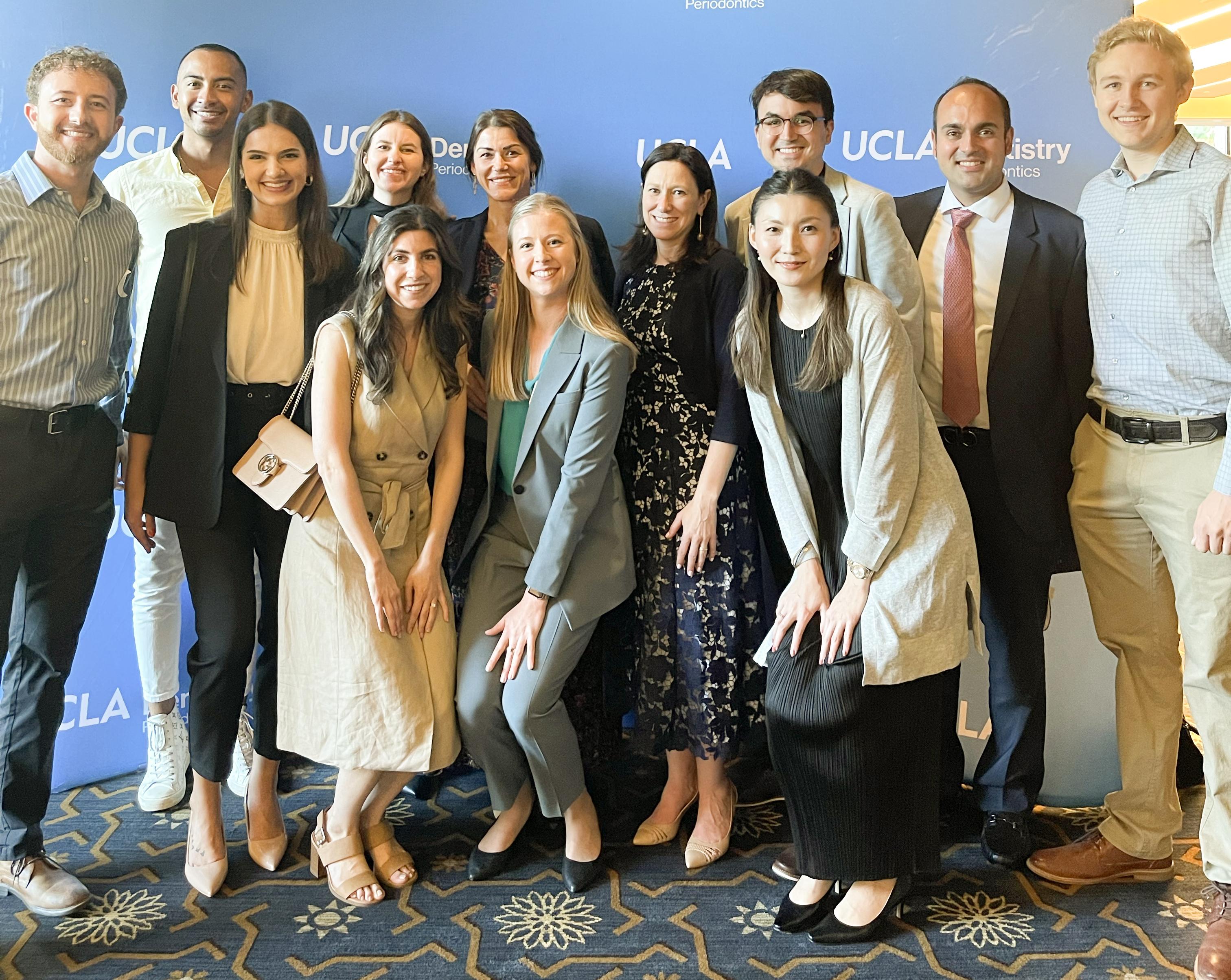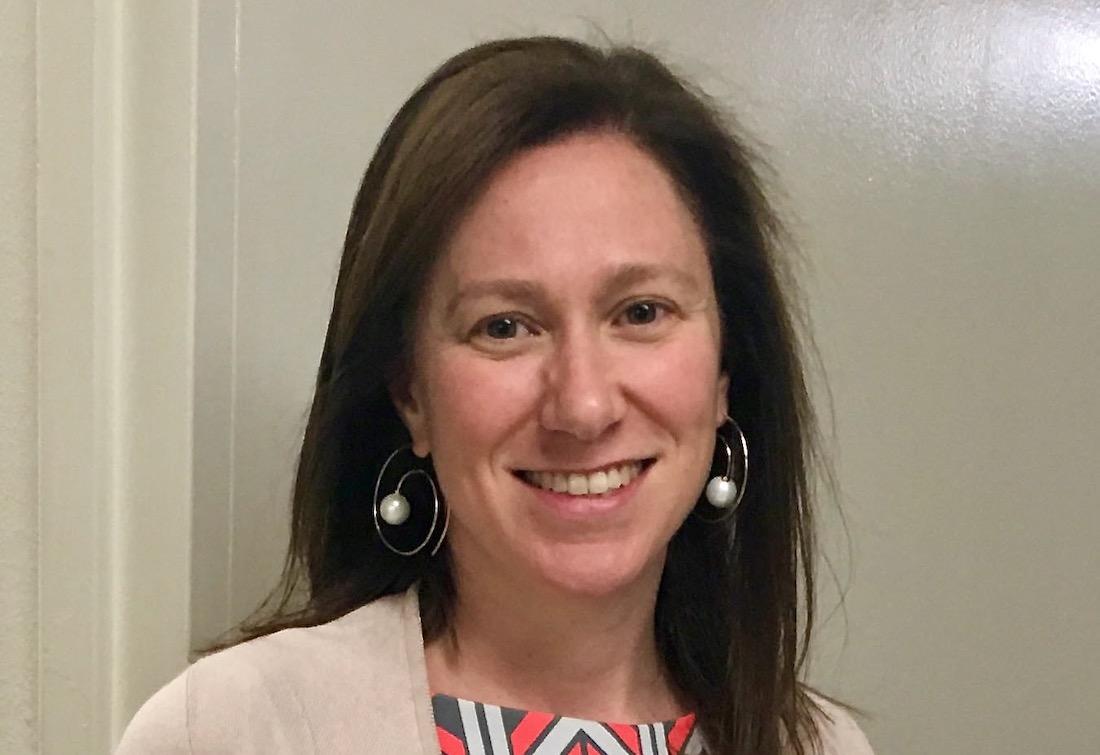Pirih's Lab


Principal Investigator:
Flavia Queiroz Pirih, D.D.S., Ph.D.About
As a periodontist, I witness first-hand the challenges of treating periodontitis and peri-implantitis. As a clinician, some of the major issues I face include: a) the lack of information on how genetics (host) affects periodontitis and peri-implantitis initiation and progression, b) how to best treat patients that have developed periodontitis or peri-implantitis, and c) how periodontitis and systemic conditions can affect one another.
My interest in the role of genetics in periodontitis was sparked during my time as a periodontal resident and post-doc. According to studies performed in twins by Michalowicz et al., approximately 50% of periodontitis is heritable; however, most of the contributing factors have not been identified/validated because periodontitis is a complex trait disease. As clinicians, this lack of information impairs our ability to better treat our patients. Therefore, a better understanding of periodontitis is crucial for our dental profession. To address this problem, we performed Genome-Wide Association Studies utilizing the hybrid mouse diversity panel. This study: a) suggested that there are many potential contributors in periodontitis, b) reinforced that some genes should be further investigated, and c) validated the importance of many genes that we know are relevant in periodontitis.
In addition to periodontitis, periodontists are faced with the challenge of treating peri-implantitis. According to Derks et al., 14.5% of patients with dental implants will develop moderate to severe peri-implantitis. Unfortunately, peri-implantitis can only be successfully treated in approximately 50% of cases. As a practicing periodontist, I have experienced the frustration from both the patient and provider perspective, of managing peri-implantitis. It is with this background in mind that my research group developed murine and porcine model of peri-implantitis. These models will allow us to understand the pathogenesis of peri-implantitis and develop new treatment strategies.
Current Projects and Grants
My laboratory focuses on understanding the basic and clinical aspects of periodontitis and peri-implantitis, with the ultimate goal of developing new strategies to prevent and treat both conditions. We conduct translational research that examines the role of genetics in patients' susceptibility to periodontitis and to better understand peri-implantitis.
Current NIH Funded Projects in the Pirih's Lab:
1R21DE023901-01A1: Mouse Genome-Wide Association Studies in LPS-Induced Bone Loss.
Periodontitis (PD) is a common inflammatory disease affecting periodontal tissues, leading to tooth support loss and potential tooth loss if untreated, with a prevalence of 47.2% in adults over 30. While bacterial biofilm is central to its pathogenesis, the host's genetic response plays a critical role, with PD being 50% heritable. This study aims to identify genetic variants contributing to PD-related bone loss through a genome-wide association study (GWAS) using the Hybrid Mouse Diversity Panel (HMDP), consisting of 100 genetically diverse mouse strains. Preliminary experiments utilizing LPS-induced bone loss models in 29 strains revealed heritability estimates and significant differences in susceptibility, supporting the genetic basis of PD. Specific aims include assessing periodontal bone loss across the HMDP and identifying genes linked to LPS-induced bone loss. Future work will validate findings and integrate genomic, transcriptomic, and proteomic approaches to advance understanding of PD susceptibility and aid in predicting genetically predisposed patients.
1R21DE031906-01A1: The role of CXCL10-CXCR3 axis in the compounding effects of diabetes mellitus in periodontitis.
Poorly controlled diabetes mellitus (DM) exacerbates the progression of periodontitis (PD), a condition that constitutes the sixth most frequent complication of DM and presents significant treatment challenges. Both conditions are linked to heightened inflammatory responses, with CXCL10 identified as a key inflammatory mediator in DM and PD. Elevated CXCL10 levels have been observed in periodontally diseased tissues and patient serum, and the CXCL10-CXCR3 signaling axis is critical for PD development. Preliminary studies show that deletion of the CXCR3 receptor or use of a CXCR3 antagonist reduces experimental periodontal bone loss (EPD) in mice. This study hypothesizes that targeting CXCL10-CXCR3 signaling can mitigate the detrimental effects of DM on PD. Specific aims include elucidating CXCL10’s role in the periodontium through genetic deletion and systemic administration, and testing the therapeutic potential of a CXCR3 antagonist (AMG-487) delivered locally via nanoparticles in DM-induced PD models. These findings aim to establish CXCL10-CXCR3 signaling as a novel therapeutic target for managing PD in patients with uncontrolled DM.
5R21DE031431-02: Genomewide association studies in peri-implant bone loss
Dental implants have transformed dentistry, but complications such as peri-implantitis (PI) affect 45% of implant recipients, with 14.5% experiencing moderate to severe cases. PI progresses more aggressively than periodontitis, often resulting in implant loss, and current treatments are only successful in resolving PI in 50% of cases. With over 5 million implants placed annually in the U.S. and a projected prevalence of 23% by 2026, PI represents a significant clinical concern. While genetics play a known role in periodontitis, their influence on PI remains largely unexplored. This study aims to identify genetic traits associated with peri-implant bone loss through Genome-Wide Association Studies (GWAS) using the Hybrid Mouse Diversity Panel (HMDP), which comprises over 100 inbred mouse strains. Preliminary studies have demonstrated strain-dependent variability in ligature-induced peri-implant bone loss, supporting the role of genetic factors. By leveraging the controlled genetic and environmental framework of the HMDP, this research seeks to uncover quantitative trait loci (QTLs) linked to PI susceptibility, treatment outcomes, and mechanistic differences from periodontitis, ultimately contributing to improved patient care and advancing scientific understanding of PI.
Publications
- Peri-implant health, peri-implant mucositis, and peri-implantitis: Case definitions and diagnostic considerations. Renvert S, Persson GR, Pirih FQ, Camargo PM. J Periodontol. 2018 Jun;89 Suppl 1:S304-S312. doi: 10.1002/JPER.17-0588. Review. PMID: 2992
- Diabetes mellitus exacerbates inflammation in a murine model of ligature-induced peri-implantitis: A histological and microtomographic study. Silva DNA, Monajemzadeh S, Casarin M, Chalmers J, Lubben J, Magyar CE, Tetradis S, Pirih FQ. J Clin Periodontol.
- Experimental Model of Ligature-Induced Peri-Implantitis in Mice. de Araújo Silva DN, Casarin M, Monajemzadeh S, Menezes da Silveira T, Lubben J, Bezerra B, Pirih FQ. J Vis Exp. 2024 May 17;(207). doi: 10.3791/66316. PMID: 38829116.
- Genomewide Association Study Identifies Cxcl Family Members as Partial Mediators of LPS-Induced Periodontitis. Hiyari S, Green E, Pan C, Lari S, Davar M, Davis R, Camargo PM, Tetradis S, Lusis AJ, Pirih FQ. J Bone Miner Res. 2018 Aug;33(8):1450-1463. d
- Early intervention of peri-implantitis and periodontitis using a mouse model. Wong RL, Hiyari S, Yaghsezian A, Davar M, Casarin M, Lin YL, Tetradis S, Camargo PM, Pirih FQ. J Periodontol. 2018 Jun;89(6):669-679. doi: 10.1002/JPER.17-0541. PMID: 2952095
- Local delivery of a CXCR3 antagonist decreases the progression of bone resorption induced by LPS injection in a murine model. Lari S, Hiyari S, de Araújo Silva DN, de Brito Bezerra B, Ishii M, Monajemzadeh S, Cui ZK, Tetradis S, Lee M, Pirih FQ. Clin Or
Lab Members
-
 Flavia Queiroz Pirih
Flavia Queiroz Pirih
fpirih@dentistry.ucla.edu- Professor
- Tarrson Family Endowed Chair in Periodontics
- Chair of Division of Regenerative and Reconstructive Sciences
Office: 63-045 CHS
Phone: (310) 825-6486 -
 Davi Silva
Davi Silva
davisilva@dentistry.ucla.edu- Postdoc
- Faculty Researcher
Office: 63–014C CHS
Phone: 310-825-5543
Collaborators
List of Collaborators Within and Outside of UCLA:
UCLA School of Dentsitry
- Paulo Camargo, DDS, MS, MBA
- Renate Lux, PhD
- Sotirios Tetradis, DDS, PhD
- Jia Chang, DDS, PhD
Outside of Dentsitry
- Nasim Annabi PhD, UCLA Samueli School of Engineering
- Aldons J. Lusis, PhD, Medicine, Human Genetics, Microbiology, Immunology & Molecular Genetics
Outside of UCLA
- Aurigena Araujo, DDS, PhD Universidade Federal do Rio Grande do Norte, Brazil
- Richard Watt, PhD, Brigham Young University
Current Lab Members:
PhD Candidate:
- Sepehr Monajemzadeh, DDS
Masters/Resident Student:
- Jaclyn Chalmers, DDS
- Carson Hunt, DDS
Post-doc and Faculty Researcher
- Davi Neto de Araújo Silva, DDS, MS, Ph.D
Past Lab Members:
Visiting Professors:
- Aurigena Araújo DDS, PhD
- Makiko Ishii DDS, PhD
Graduate Students:
PhD Students/visiting graduate students:
- Maisa Casarin, DDS, PhD
- Sarah Hiyari, PhD
- Taciane Menezes da Silveira, DDS, MS, PhD
Masters/Resident Students:
- Julia Chen , DDS, MS
- Elisa Green, DDS, MS
- Soma Lari, DDS
- Ho-Yin Leung, DDS, MS
- Sherif Warda, DDS, MS
- Ryan Wong, DDS, MS
- Aline Yaghesezian,DDS
- Ana Bujila, DDS
- Sepehr Monajemzadeh, DDS
Dental Students:
- Kearny Chang, DDS
- Greg Chang, DDS
- James Zaiger, DDS
- Jacob Lubben, DDS
Others:
- Ana Dilza Barroso, DDS
- Adrian Jorge, DDS
- Jeniffer Perussolo, DDS
- Ishdeep Kaur
- Hanan Dirirsa
- Rangsinee Suksakulchai
- Marcus Fang
- Fatima Navabakhsh
